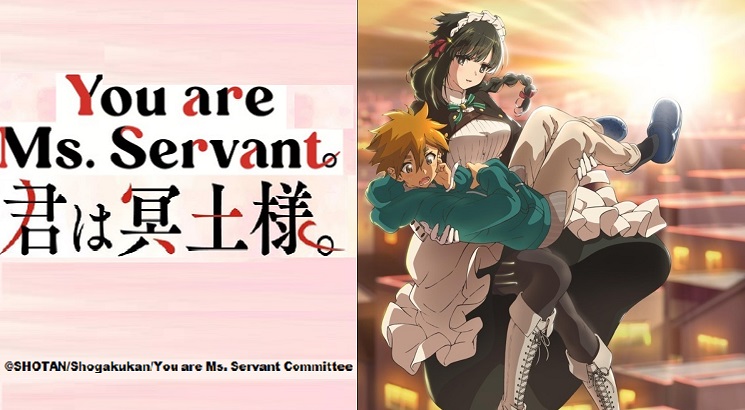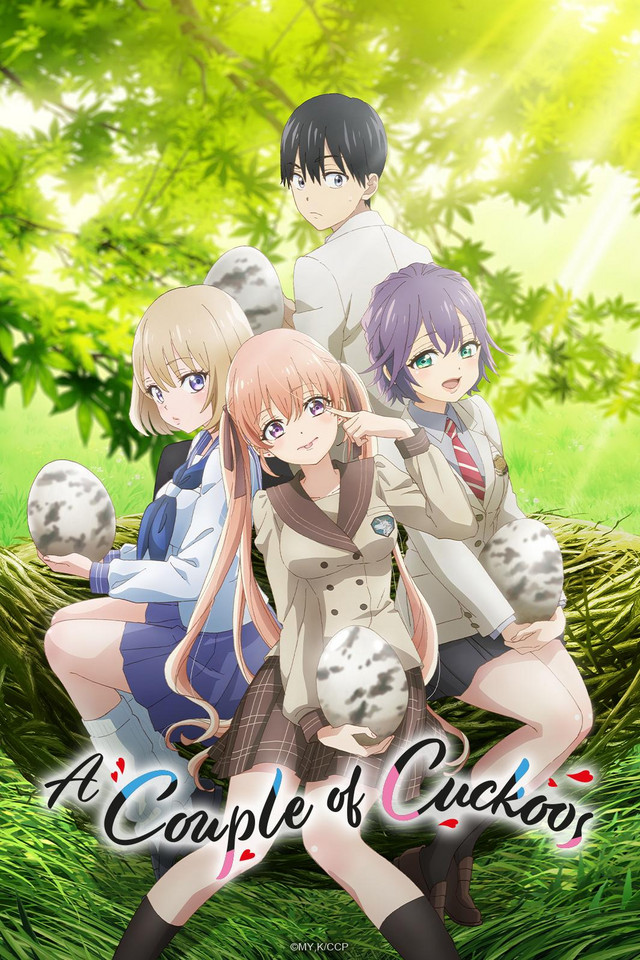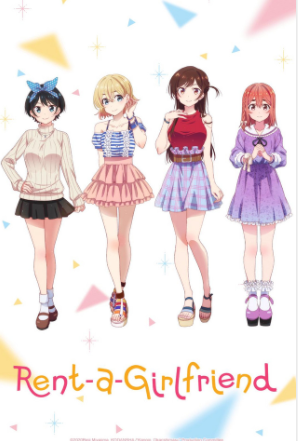English Dub Season Review: You are Ms. Servant Season One
Based on the Japanese manga series written and illustrated by Shotan.The heart of the story follows Hitoyoshi Yokoya, a 15-year-old high school kid who lives alone. One day, he hears a knock on his door. He opens it to find a strange 16-year-old girl offering to be his maid who is later named Yuki. Yuki has beautiful black hair, graceful manners, and…a dark past as an assassin. But despite her deadly background and lack of household skills, Hitoyoshi takes her in. As Yuki adjusts to her new life, she begins to experience emotions she’s never felt before…
On the technical side, this series adaptation was produced by Felix Film and directed by Ayumu Watanabe, with Deko Akao overseeing series scripts, Tomoyasu Kurashima designing the characters and Masahiro Tokuda composing the music. The opening theme song is “Out of Sync”, performed by Tricot, while the ending theme song is “Facial Expression” performed by Dustcell.
If I could try to describe “You Are Ms. Servant” it would be that it’s an Anime with an Identity Crisis. It seems to have no idea what it wants to be. On one hand, it was marketed as a comedy, but the reality is that it leans much more heavily into a slice-of-life genre with occasional comedic undertones and action sequences. The premise revolves around a high school boy, Hitoyoshi, and his maid, Yuki, a former assassin whose arsenal and skills mainly consist of throwing knives, martial arts skills, and Spider-Man-like acrobatic speed & agility. Yuki must now navigate the simple tasks of normal life. The anime attempts to balance the lightheartedness of daily life with hints of action, but it never fully commits to either genre, making it a mixed experience for anyone seeking something either comedic or action-packed.
One of the primary issues with the anime is its mislabeling as a comedy. While there are moments of humor, the tone is much more subdued and relaxed, with the comedy manifesting through lighthearted interactions between characters rather than through punchlines or exaggerated scenarios. This shifts the show more into the territory of slice-of-life, where the focus is on everyday living and character development rather than comedic moments. The humor is so mild and underplayed that it barely registers as a defining feature of the series, instead blending into the backdrop of an otherwise peaceful, calm narrative.
The anime does shine in its portrayal of ordinary life, which it captures in a charming, low-key way. At its heart, You Are Ms. Servant is about an assassin turned maid trying to integrate into normal society, something that’s both heartwarming and wholesome. This approach gives the show a light, feel-good energy that can be comforting to viewers looking for something relaxing. There’s a certain beauty in seeing the protagonist, Yuki, struggle with mundane tasks like household chores, her lack of domestic skills acting as a relatable flaw that humanizes her. The story also gently touches on themes of normalcy and healing, making it a good choice for viewers in need of something heartwarming and calming, even if the Season Finale left more to be desired…
When it comes to animation and music, the show excels in creating a visually pleasing experience. The animation is smooth, with fluid movements that add a layer of elegance to the characters, even during some of the more improbable action sequences. Yuki’s acrobatic skills and her superhuman feats as an assassin are shown with remarkable grace, despite the lack of intense action. The color palette is soft and soothing, complementing the serene atmosphere of the show. Musically, the soundtrack is serviceable, supporting the mood of key scenes without overshadowing them. Both the opening and ending themes are catchy and align well with the overall tone, though they don’t stand out as exceptional. Together, the animation and music enhance the show’s gentle nature, making it a pleasant visual and auditory experience.
Overall, “You Are Ms. Servant” attempts to explore themes of normality, growth, and the emotional journey of its titular protagonist, but it often stumbles. The potential for a compelling story is there, but it never truly delivers on its promise. While the show has some redeeming qualities—particularly its heartwarming tone and charming characters—it ultimately struggles to make a lasting impression. After the first few episodes establish the characters and setting, there’s little development beyond the early arcs. The anime’s attempt at blending action, romance, and slice-of-life elements often feels forced, and many of the subplots, such as Yuki’s past or the distance between Hitoyoshi and his father, are left unexplored. And with the way the season finale ended, it ultimately feels like a missed opportunity to do something more meaningful with its unique premise. At the time of this review, there’s currently no word of a Season 2, but if it does happen, I’d be more than willing to see what happens next, for better or worse…






















"There are also other characters that come and go (also owned by the Warner Bros. Discovery conglomerate media company)."
Huh. Is that just referring to other characters from the show itself, or is this implying that the new season is going to have cameos from other WBD IPs